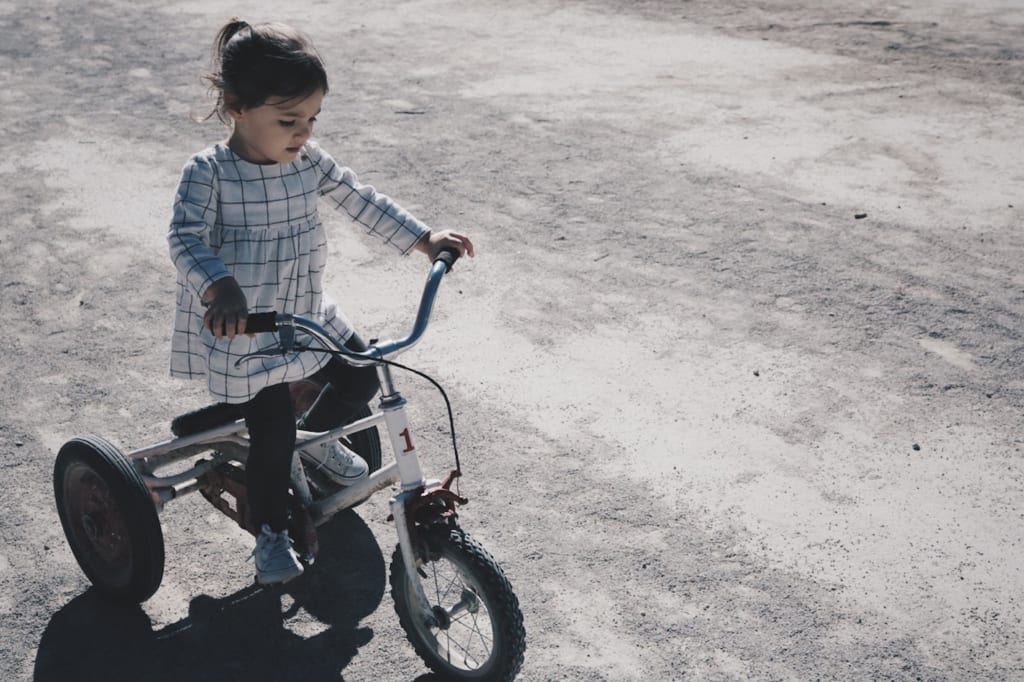
Raising an introverted kid can be perplexing to extroverted parents, who cannot understand totally their bairn, his quietness, alienation, and difference to them. Nowadays, in a society geared towards extroversion a lot of perceived success is based on self-promotion, exhibiting yourself and your skills. Introverted people sometimes can't cope with such pressure. They are not just ‘shy’ as inexperienced parents may claim, they simply think and express themselves differently. Such children have their own strengths and abilities that need to be nurtured and developed. This is a challenge for parents that they must pass with honor and dignity in order to make their child happy, prepare him to social scrutiny and adapt it to the world of completely different people.
Introverts are born that way.
Carl Jung first coined the term introvert in the 1920s to describe a person that becomes emotionally and physically worn out in social situations. Recent neurophysiological research shows that introverts favor the parasympathetic side of their nervous system (‘rest-and-digest’), whilst extroverts mostly employ the sympathetic side (‘full-throttle’). It is about how you respond to the neurotransmitter dopamine – the dopamine reward network is more active in extroverts even though they both have the same amount of dopamine available. Dopamine will energize extroverted kids but overstimulate the introvert, who prefer to use acetylcholine which makes you feel good when you turn inwards. It allows you to reflect, think deeply and focus on one single thing for a while.
Before some particular age, there is no reason for parents to be alarmed and assume that the child is an introvert. This age is three years according to scientists. Before this age kids go through various growth stages which change their behavior significantly and mold future temperament. Of course, the personality of the child will be formed for many more years, but at the age of three or four years, the features of introversion become obvious.
Extroverted children in comparison with introverted peers take their energy and recharge right away in games with other children, noisy communication, activities in a group, physical activity, etc. It is crucial for them to express his feelings and emotions forthwith after drawing new impressions. So, calm occupation makes them uncomfortable and for doing it they have to make an expend effort. From the other hand, an introvert child with more enthusiasm reacts to going to the movie, museum, than to active time spending with friends on the street. Such kids comprehend their impressions in a quiet game, with a favorite book or with someone really close to him. Extroverts learn the life and restore strength via communication and external relations, versus introverts do it quietly, in private with their own thoughts and inner world. These are inherent features of their temperament and both will carry them into adulthood.
So, your introverted child basically gets their energy by focusing inside himself and needs alone time to recharge his batteries, whilst extroverts will seek stimulation and energy by being with others.
Characteristics of Introverted Children
- Are quiet in large social settings
- Will prefer to watch activities before joining in
- Prefer one-on-one communication
- Are good listeners
- Slow in answering questions as they must think about it first
- Good at learning through observation
- Not keen to share emotions
- Concentrate well
- Selects their activities carefully
- Need quiet time to recharge
- Values inner reflection
The family is the main source of support and pressure at the same time. Exactly where we obtain our first and most important experience of interacting with people—socializing. Therefore, how the family will teach him, so will he behave in the future. The most important thing to remember for every parent is to instill in the child a love of self and the understanding that all people are different and it is absolutely normal. He has the right to be different. While some parents try to "speed up" their child and impose a "right" lifestyle by their opinion, this may lead to the alienation of the child, appearing of complexes, feelings of inferiority and dislike.
Often it is the parents who cause the child’s problems in self-perception. They cannot fully understand him and the child feels disapproval or disappointment of the parents. In the end, if the parents do not reconsider their attitude or stop the pressure, the child who seeks for love and approval will start to pretend. His ostentatious gaiety or activity will be destructive to his inner world and devour him from within. Unfortunately, sooner or later, perhaps already in adolescence, this will result in anger and aggression on parents who did not understand him, did not love his true “I” and instilled an inferiority complex.
How to Help Your Kid to Embrace a Potential
The best thing you can do for your little one is faith and support. Help him to understand his strengths, show how to use them, give him lots of positive reinforcement. In no case do not compare with others. He has his own advantages and disadvantages, and your task is to indicate the advantages and how to manage them, how to unleash your own potential. If you do it wrong or do not try to do it at all, the child will feel deprived in a world where most people are extrovert and valued by others.
- Introverts have a rich inner life: Introverted children are well aware that they have their own inner world. He has an extraordinary vivacity. Instead of looking at others, they rely on internal resources and are guided by their own ideas. Therefore, they are resistant to pressure from the outside and rarely succumb to the herd instinct. Parents need to help little introverts to learn to express thoughts, to master the art of communication. Without contact with like-minded children or adults, introverted children begin to think that their feelings are completely alien and unfamiliar to others, that an irresistible wall separates them from those around them.
- Introvert knows how to enjoy the present: Introverted children can live and enjoy the present, appreciate the little things, the details, past which extroverts pass without turning their heads. Often, such children do not even need to leave the house to find an interesting activity. Parents should not laugh at the ability of your little introvert to enjoy a leisurely walk, from building a tent out of a blanket, from sitting at home to painting pictures. Take time, take a break from the hustle and bustle and share a moment of peace with your child.
- Introverted children love to learn: They have a genuine thirst for knowledge, but it is often difficult for them to show this in school, surrounded by noisy, active classmates. In the university, it will be easier for them: the system of education there is more in line with the character of the introvert. Many introverts write well, often keep a diary secretly from others. Parents should encourage and develop their interest in learning. Without a constant influx of information that gives thinking, a child can get bored and even become depressed.
- Introverts are able to think outside the box: Introverted children can be creative in solving problems. They usually listen and absorb all the information, think it over for a while and finally give an unexpected, but usually reasonable answer. Parents should strongly encourage the creative thinking of the baby. Ask for his opinion on various issues. Consult with him about the problems that you face yourself.
- Introverts are not bored alone: They love and appreciate privacy. They do not need proactive in order to feel busy. They have an amazing ability to concentrate and sometimes they simply disconnect from the outside world, plunging headlong into some business. Parents should show that the ability not to be bored alone with them is an invaluable gift. Such a person is truly free, he does not depend on others. This is the foundation of many professions in which introverts can be successful.
- Introverts are modest: Many children today are involved in “vulgar competition”—in sports, in various TV shows, beauty contests. Introverted children do not participate in the struggle of ambitions. They prefer the role of spectators rather than actors. From an excessive interest in their person, they may even experience physical discomfort. Parents, respect the reluctance of the little introvert to be the center of attention. You can remind him that there is nothing wrong with an unwillingness to show off. modesty has a positive effect on their self-confidence. Modesty has a positive effect on their self-confidence.
- Introverts know how to be friends: They are loyal, caring, compassionate, understanding. Excellent listeners. This makes them truly invaluable friends. It is not so easy for an introvert to come together with another person, but if this happens, the relationship will be strong and long.
About the Creator
Tata Nech
I'm a super mom, a passionate food activist, who blogs with the hope of creating a parenting resource others can learn from. With aim to help moms rediscover the passions they had before motherhood and navigate the challenges they face now.






Comments
There are no comments for this story
Be the first to respond and start the conversation.